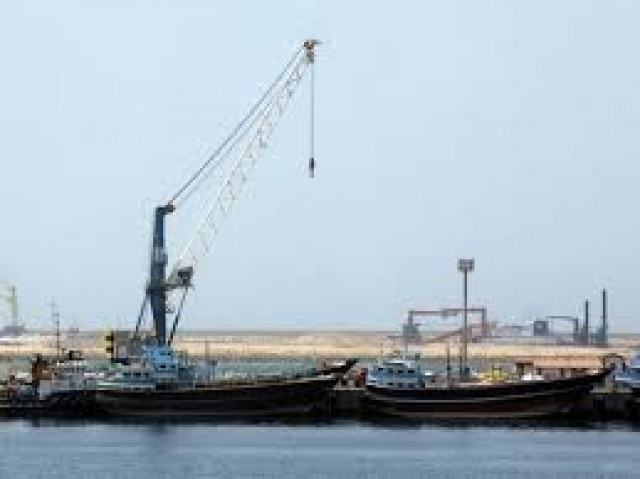The Chahbahar challenge
The Chahbahar port is central to India’s efforts to bypass Pakistan and open up a route to landlocked Afghanistan

A partial view of the Kalantari port in city of Chabahar. PHOTO: AFP
Iran quashes talk of undermining Gwadar port
India is helping develop the Chahbahar Port, which will give it access to the oil and gas resources in Iran and the Central Asian states. Tehran plans to use Chahbahar for transhipment to Afghanistan and Central Asia. India, Iran and Afghanistan have signed an agreement to give Indian goods, heading towards Central Asia and Afghanistan, preferential treatment and tariff reductions at Chahbahar. India has also finalised a plan to build a 900km-long railway line from the Afghan province of Bamiyan to Chahbahar port. Chahbahar provides India an easier land-sea route to Afghanistan. New Delhi has already spent $100 million on building a 220-km road in the Afghan province of Nimroz. The road will be extended to Chahbahar.
With sanctions against Iran likely to be lifted soon and seemingly justifiably worried by the launching of the China-Pakistan Economic Corridor (CPEC), an energy and infrastructure project costing $46 billion, India, perhaps, would like to move swiftly to get the Chahbahar port operational at the earliest. Iran has also proposed a free-trade agreement with India. Indian exporters want to build on the already existing significant trade relations with Iran, using the free-trade zone being developed near Chahbahar to increase exports to the Central Asian states.
Iran not against CPEC, Gwadar port: Javad Zarif
The Chahbahar port is central to India’s efforts to bypass Pakistan and open up a route to landlocked Afghanistan. Kabul stands to benefit the most from the project as trade volumes from the war-torn country to markets in Europe and the Middle East could soar exponentially. India has pledged to commit about $85 million to construct container and multi-purpose terminals at Chahbahar — a rather modest pledge compared to the billions of dollars that China has agreed to spend on the CPEC in Pakistan. Still, the deal is significant for bilateral relations. The geopolitical implications of the Chahbahar project are considered to be huge, as it seems to be one of the most consequential developments in the region. One can also see the creation of new trade routes stretching from the northern reaches of Central Asia down to southern Iran. Oil exports from the Middle East would be able to reach new markets in Asia and the Central Asian states. More importantly, Afghanistan will be able to better connect with markets in the Middle East and Europe. Additionally, the Chahbahar project is expected to set up a notable regional competitive dynamic with the Gwadar port in Pakistan.
Had Pakistan extended transit permissions to India, perhaps India may not have been as interested in building up Chahbahar. India knows, however, that if it is serious about acquiring stakes in Central Asian gas fields, it needs to find a direct way to access the region. It can’t do so through Pakistan, so it has decided to go through Iran, which may be long-drawn and indirect to an extent, but feasible nonetheless.
Iran's Chabahar free zone awaits end of sanctions
The Chahbahar project is said to be more important to Afghanistan than to anyone else. Some experts have called it an economic bonanza for an economically troubled country — one that is expected to suffer even more after the dollars that have been pouring into Afghanistan to sustain the US war machine, reduce to a trickle when, by 2017, all residual American troops leave the country. In effect, Afghan trade volumes are expected to soar exponentially, as Afghanistan would be able to ship goods more easily to key markets in Europe and the Middle East. It would also be able to import key goods more easily as well. All this in turn is expected to make investors and donors more comfortable about providing financing to Afghanistan.
Published in The Express Tribune, November 18th, 2015.
Like Opinion & Editorial on Facebook, follow @ETOpEd on Twitter to receive all updates on all our daily pieces.














COMMENTS
Comments are moderated and generally will be posted if they are on-topic and not abusive.
For more information, please see our Comments FAQ